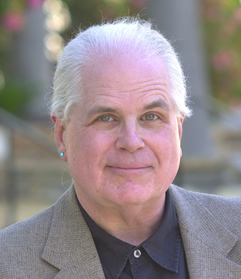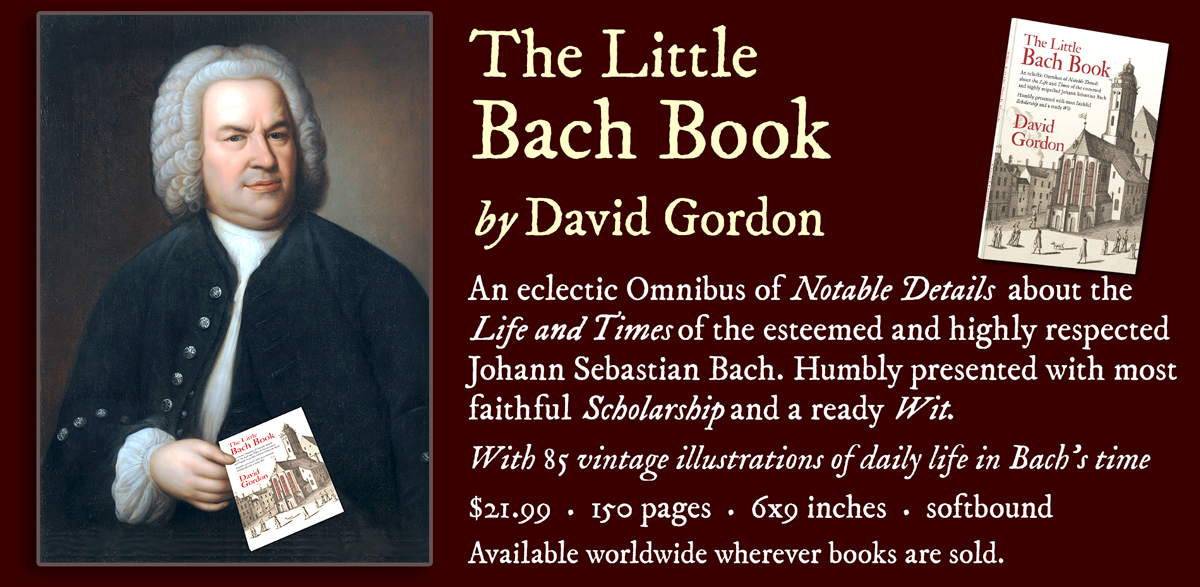

J. S. Bach came into my life in 1971. I was a fledgling opera singer thinking about Mozart and Rossini when I was hired to sing the narrator role (the “Evangelist”) in the two-hour St. John Passion. Bach’s amazing music for tenor grabbed me with its “high lonesome” sound and dramatic potential. Bach became my friend, and as I studied and performed dozens of his compositions over the years I enjoyed learning about the man himself: he’s way more interesting than the stern-faced marble bust on the piano.
He wasn’t a superstar: in the early 1700s Bach was a salaried employee with a large family living in an apartment in a major city. I was curious about daily life in those days. What did a middle-class German family eat, drink, and wear? How did they cook, or bathe, or illuminate their homes at night? How many churches were inside the city walls, and how many taverns?
Answers to these questions often help make Bach more real for us. They also remind us that the “Baroque” era in Europe was the “Colonial” era on this side of the Atlantic—we and Bach are all part of the continuum of human history.
After years of lecturing about all this, I’ve published The Little Bach Book, a collection of my very favorite material. It’s 150 pages of historical vignettes, scholarly details, bits of pathos, glimpses of real life, tales of beer, coffee and tobacco, and more. The book is not about Bach’s music—it’s about his career and the everyday world around him. He had a hard life, like most musicians in the 18th century, and I believe by learning more about their lives we deepen our connections with their music and maybe with our own past.
The scenes from Bach’s life include the time he asked to quit his job and was thrown in jail for a month; his Friday night orchestra gig in a fashionable downtown cafe restaurant; and the outdoor torchlit concert where his trumpeter died of smoke inhalation. I also honor the deaths of Bach’s first wife and ten of his children, and the sad widowhood of his second wife Anna Magdalena, who outlived him by a decade.
300 years ago Bach wanted to entertain, stir the heart, and enlighten. In his honor, I hope The Little Bach Book will do a bit of the same.
~ David Gordon, Jacksonville, Oregon, Summer 2017
Written for the July 2017 print edition of the Jacksonville Review.
ABOUT THE AUTHOR (the links below lead to David's website)
Described by the Washington Post as "a model of style and charm, and an irresistible performer," tenor David Gordon has forged an international classical music career as singer, author, lecturer, teacher, and recording artist.
David is particularly known for his vivid performances of the music of J. S. Bach on recordings and in hundreds of concerts throughout North America, Europe, and Japan. The Chicago Tribune described him as “one of the world's great Bach tenors” and in 2017 the St. Louis Post-Dispatch called him “one of the great interpreters of the Evangelist of our time.” For more than three decades David was a popular and central figure at the Carmel Bach Festival in California, where he served as tenor soloist, lecturer, Dramaturge, Master Class Director, and member of the artistic leadership.
In a wide range of repertoire David has appeared as tenor soloist with virtually every major North American symphony and opera company, and with prestigious orchestras, operas, and music festivals on four continents. He can be heard on 15 CDs for Decca, London, RCA, Telarc, and other major labels.
David lives with his wife, Ginna Gordon, in Pacific Grove, California.
His website is www.spiritsound.com
